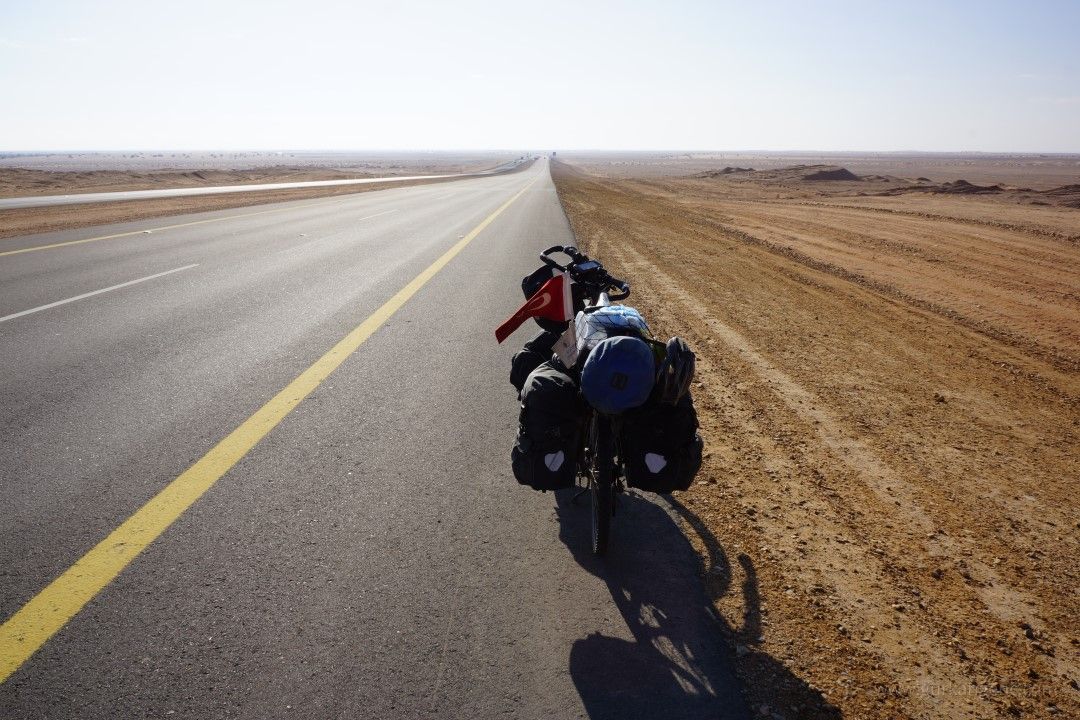
The route I followed in Saudi Arabia on bicycle
Exiting Tubarjal a group of people started to follow me for a while. They took photos, horned but since I didn’t stop returned back to their villages soon. Actually there is a short cut from Tubarjal heading to Al Ula direction. This field road directly connects to M-88 highway. Normally I would choose this road but while checking towns on my route in Huseyin’s house a town, Dumant Al-Jandal, caught my attention for its historical background. Therefore I decided to lengthen my route for 320 km and then turn to Al-Ula direction at the town Hail. I believe it is worth to visit.
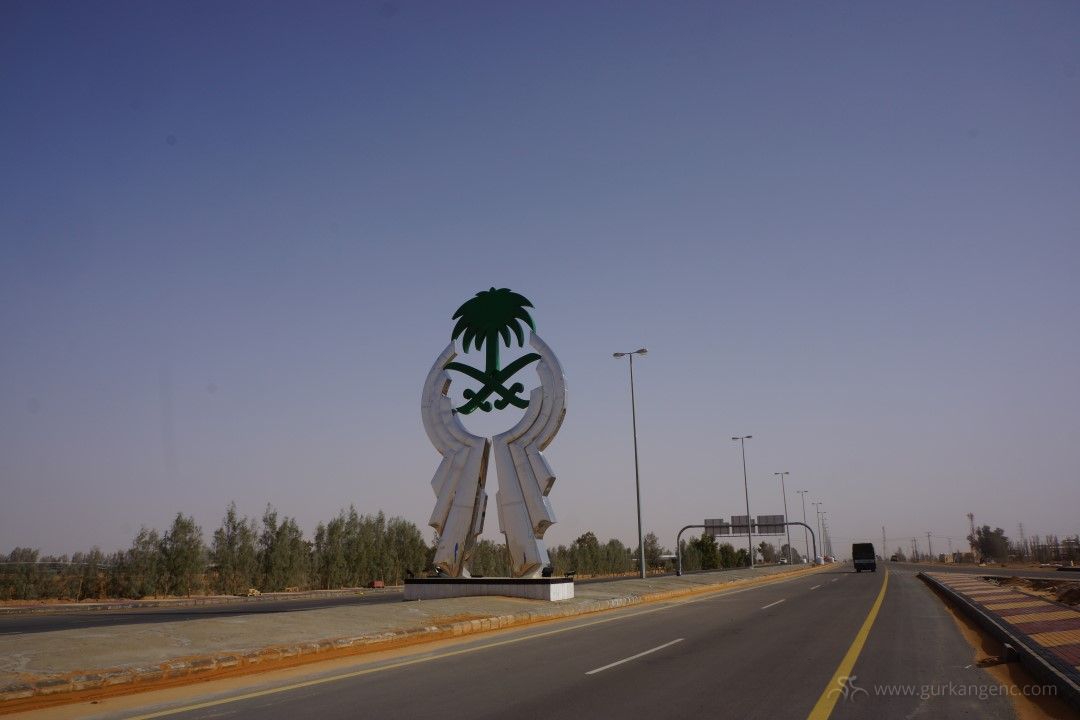
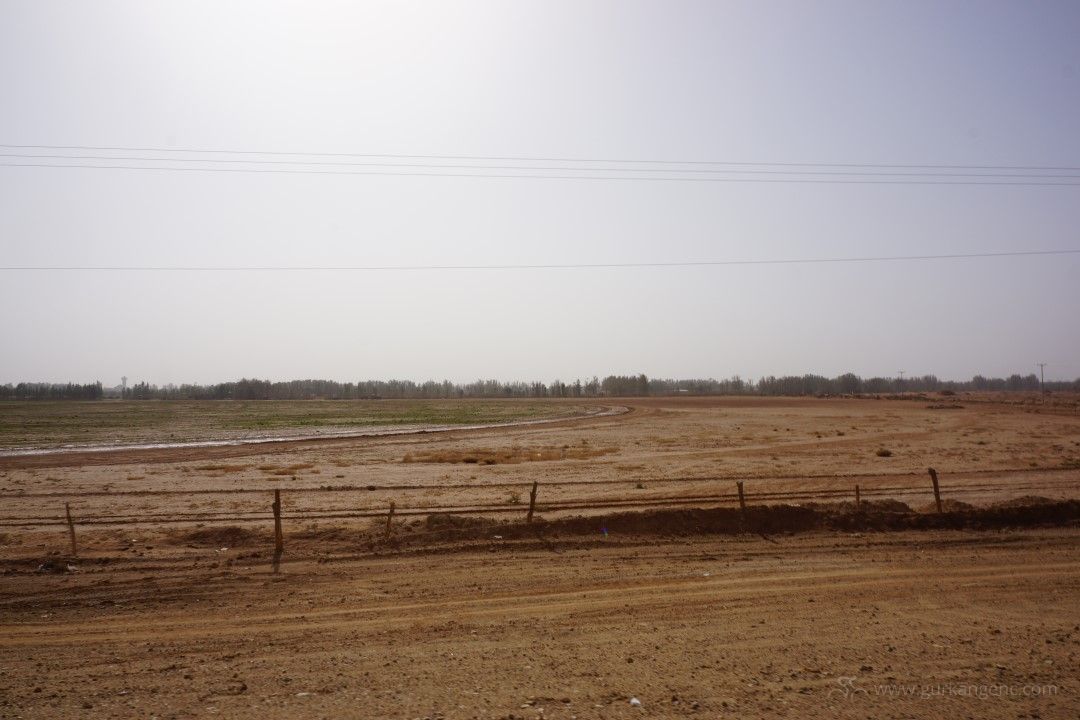
On the road down to south from Tubarjal there are agricultural fields on both sides stretching for 140 km. Almost all arable land around was turned into agricultural fields. This country developing an agricultural policy in 1970s achieved a drastic improvement in agriculture. Saudis gained a considerable success in exporting agricultural produce in a country having arid to hyper-arid climate. (In how many countries desert land has turned into agricultural fields?). The contribution of agricultural export to national economy of this country hosting one of the biggest deserts is 8%. In my previous article I had mentioned that it snowed for the first time in this region. Normally, it is a region with very limited rain. Therefore, usage of water and irrigation were restricted by the state. Even, closing the agricultural fields in the future was under question.
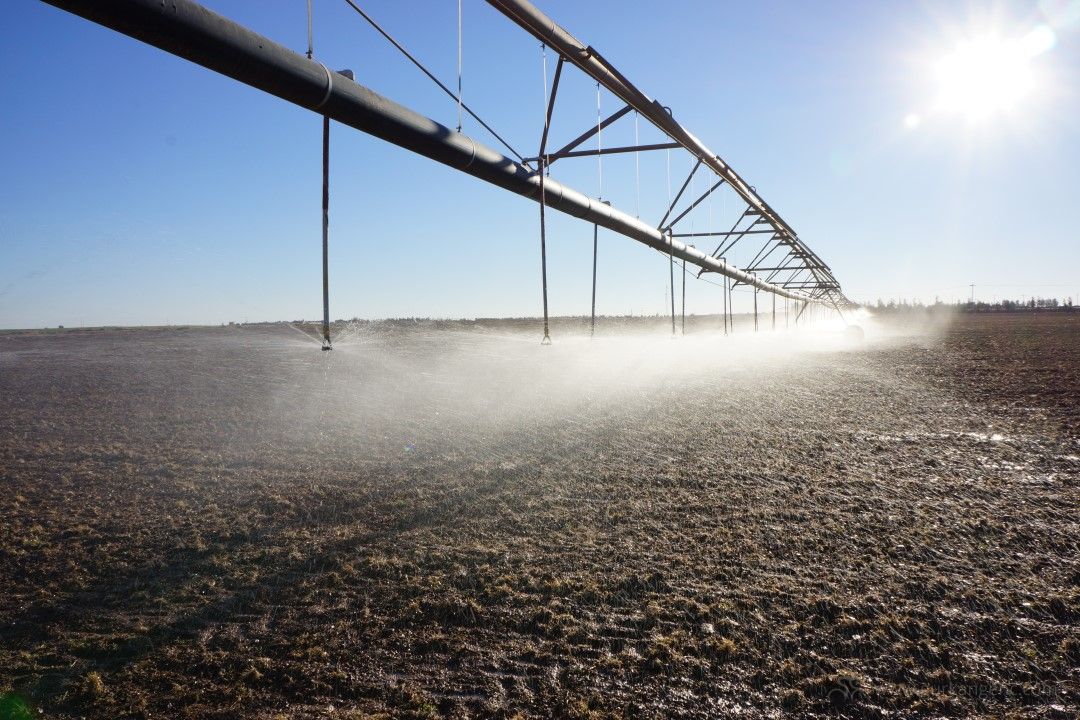
It is assumed the water resources on the north become short in future. Therefore, Saudi Arabian farmers bought or leased huge amounts of farmland in Sudan and Ethiopia. While agriculture is being partly practiced in Sudan, the Ethiopian government took some measures against Saudi farmers. But I could not find clear information about this issue. As far as I understood, the government wanted to seize a part of the produce due which the relations got in trouble. On my search at international agricultural service providers, I came to know that Saudi Arabia imported agricultural products at a value of 1.4 billion USD in 2014. At this point there is no need to say: “Wow, but they earn a hell of money from petroleum dude.” The annual income of this country from Umrah and Hajj is 8 billion USD. Knowing that the Moslems are subject to a quote preset and knowing that they are increasing their accommodation and service capacity, it can be said this income will automatically increase in the future. After traveling for 4000 km in this country my perception is such: Dude, they don’t need such agricultural attractions : ). Camels and date palms are more than enough.
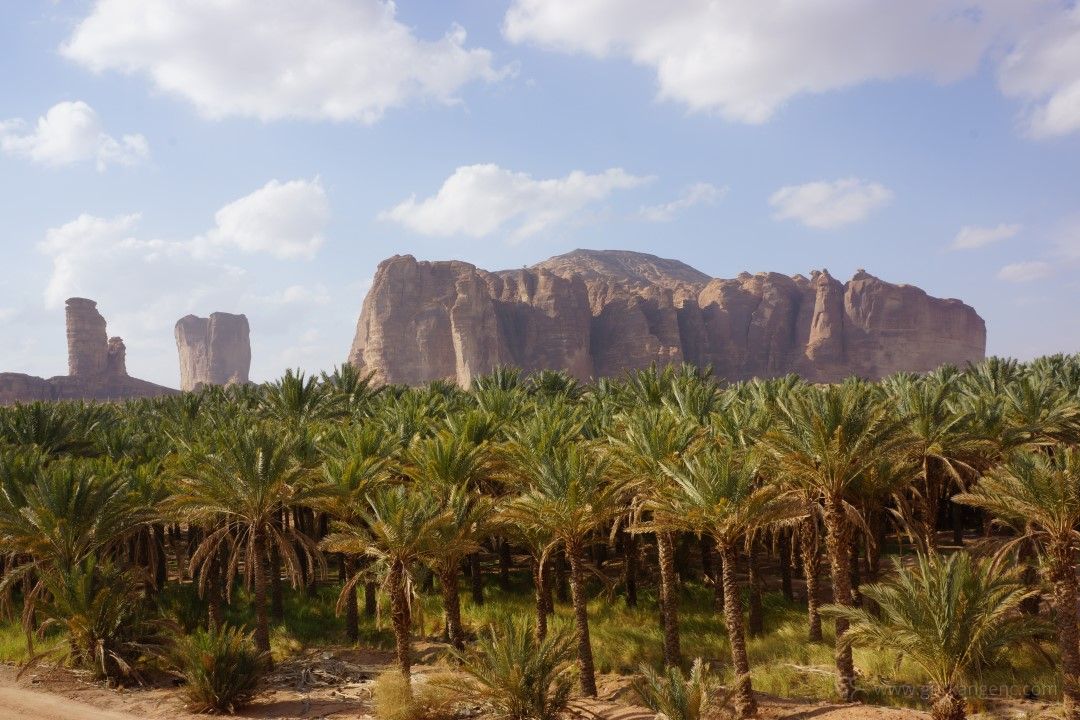
They produce 1.5 million tones dates on 200 000 hectares. It is assumed that there are around 20 million camels in this country. Once the Saudi king said: “Don’t make us disappointed we’ll stop selling petroleum to the world, dates and camels would suffice us” He died one year after he said these words. To me he was right. Well, as I said after I entered the country it snowed, and after a week their king died. The new king become Salman. The day he took the governance over he ordered premium salary paid to all the state employees.
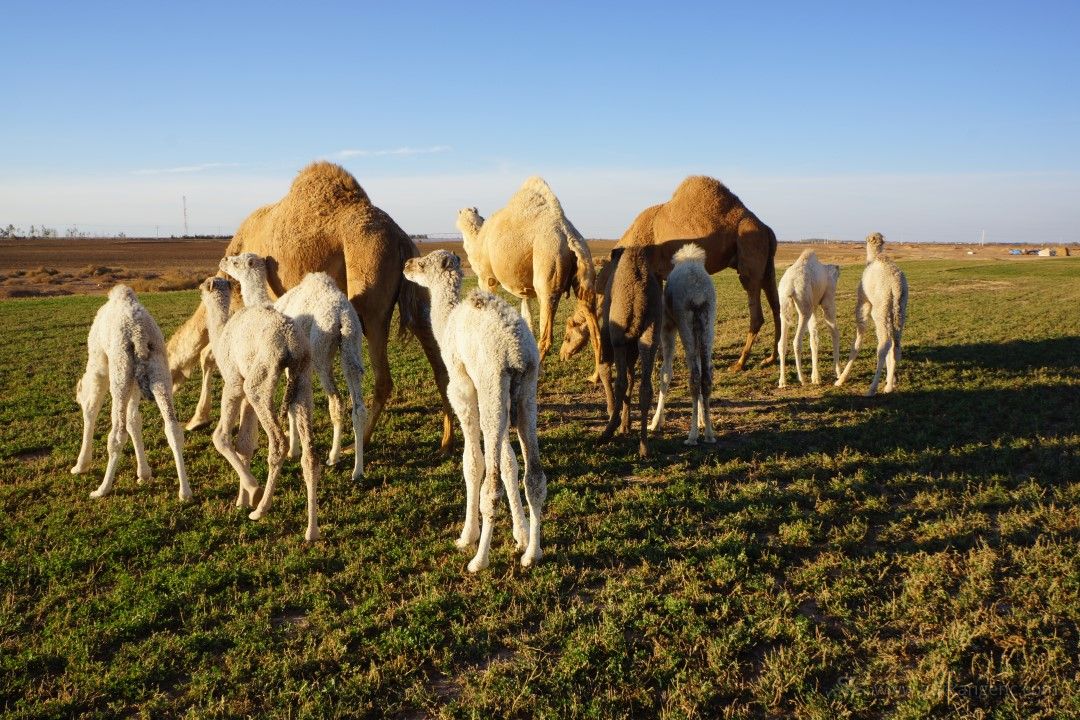
Mentioning camel, guess what came in my mind. You know, when you construct a highway through endless forests you divide the wildlife into two. The living beings are hindered from crossing from one side to the other. I saw countries during my travel which took precautions for establishing communication within wildlife: Japan and Holland. I add a new country to those ones SAUDI ARABIA. As I saw the first bridge in the middle of the desert to which I couldn’t give a meaning. I looked around there was nothing but only a bridge in the middle of the desert. Since the road was fenced with wire you couldn’t enter the bridge if you had wanted to. By the way, the highways were fenced with wires through the 4000 km I’ve ridden to prevent the camels entering the road. I thought that this bridge was an uncompleted construction work. After I saw new bridges at certain intervals I thought that they were constructing a settlement in the desert. While passing one of them I saw camels in row at the entrance of the bridge and said: “Wow, dude, are these eco-bridges?” I parked my bicycle under the bridge and waited for the camels to pass the bridge in order not to disturb them. After they all passed to the other side I stepped on the bridge.
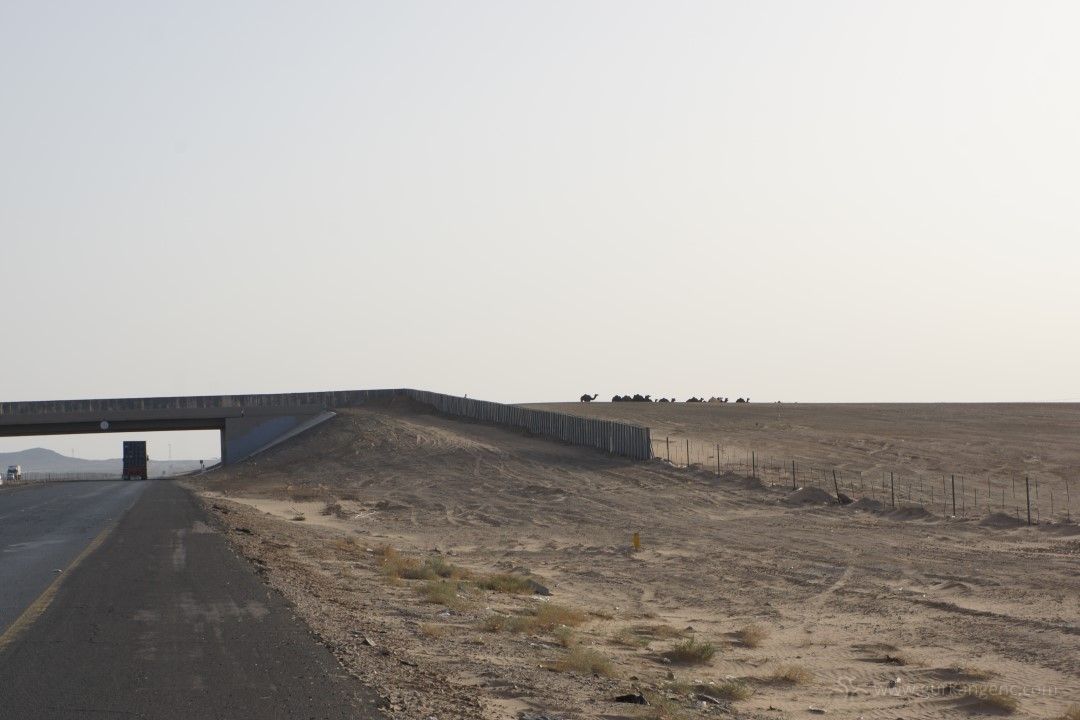
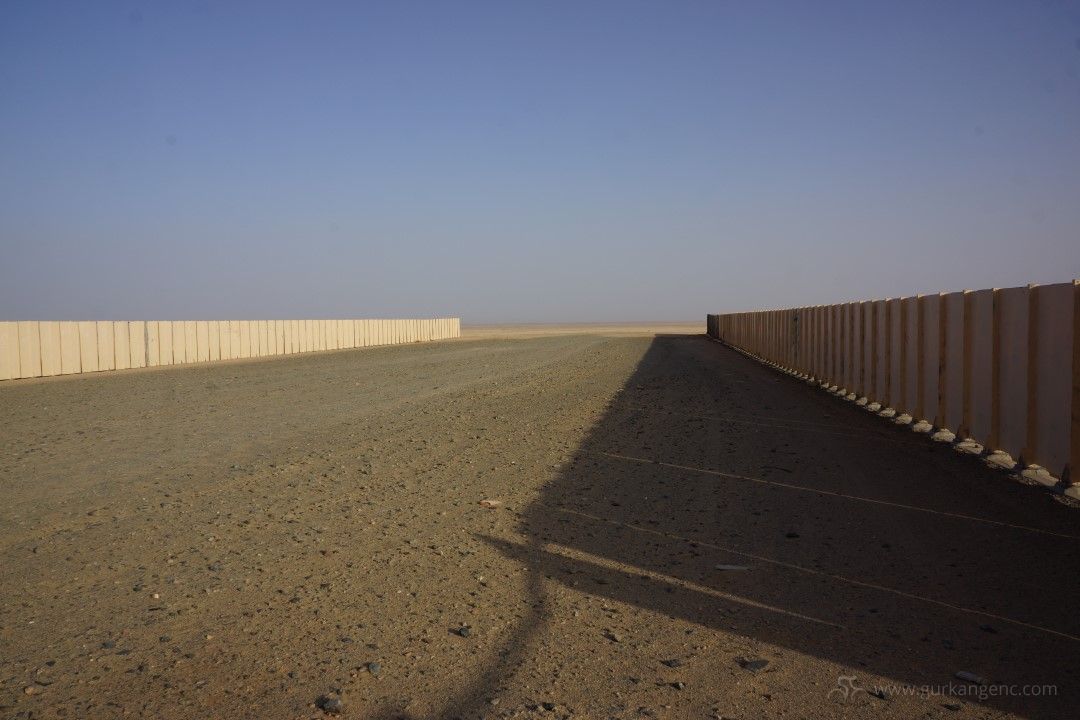
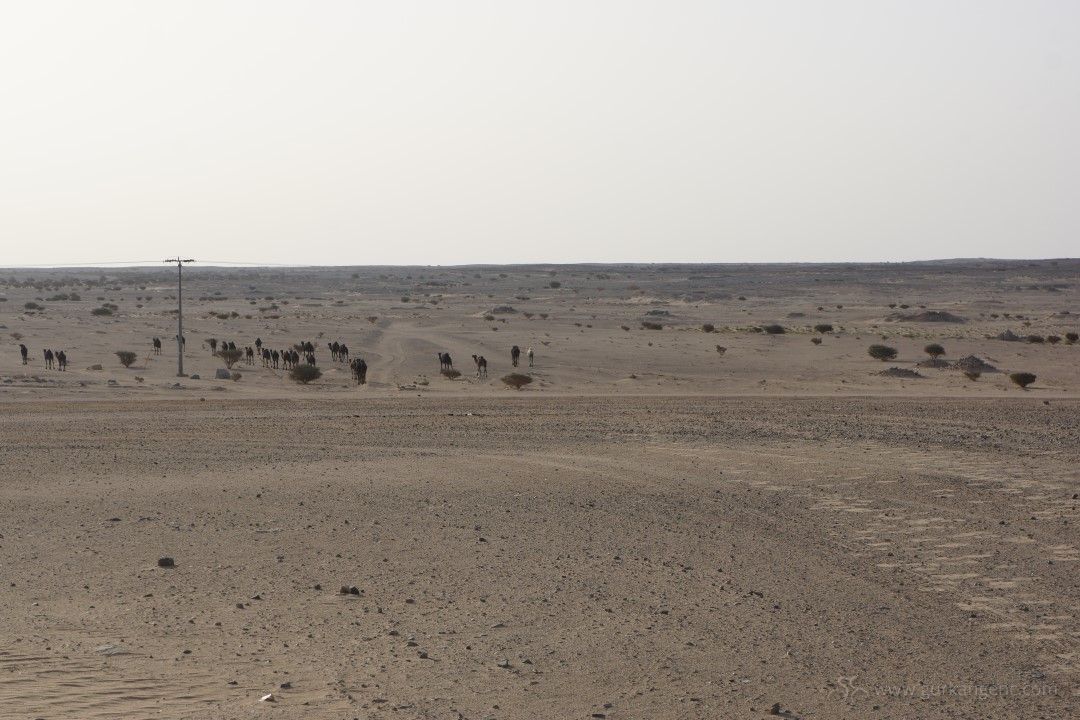
Wowww! They really constructed eco-bridges. A normal bridge coated with sand and natural stones instead asphalt giving an effect of a natural continuation of the desert. The camels were on their own. Every camel in the desert, but every single camel, has an owner. I take my hat off to this work.
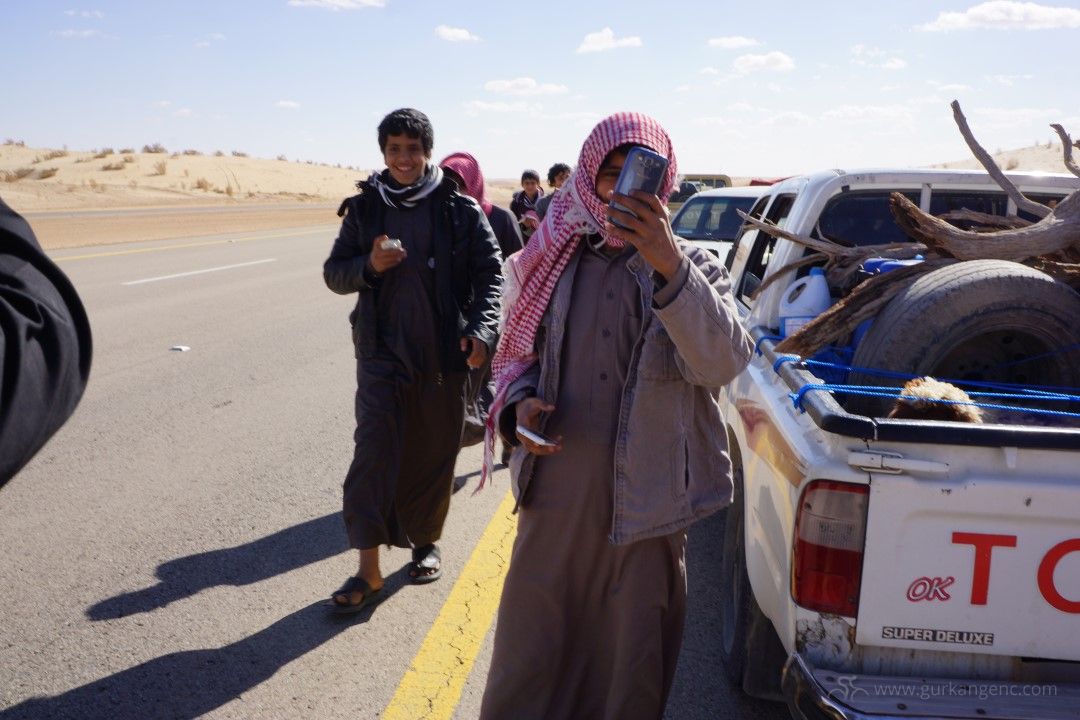
Towards evening as cars were appearing around me, I said enough dude and changed the lane towards the other side of the road, first over the stabilized road, then over the oncoming lane, finally over the hard shoulder. From there I went down to ride on the sandy field. Just across me was an agricultural field, not more than 1-2 km far. I looked back no body was following me. Strange, normally they had to follow me with their cars. After a while a V8 came next to me and the driver asked if I was going for toilet. Hahahaha… Dude, all those drivers thought I was going for toilet and therefore didn’t follow me. Well, good to hear that. As I said that I was planning to camp on the agricultural field over there, he got surprised.
– Will you sleep here?
– Yes, here.
– There is a settlement after 100 km.
– I’ll sleep here, I got tired. Thank you my friend.
Of course after this talk he returned and told the others the situation. Dude, imagine such a situation. 10 lanes and all the cars entered the desert heading towards me all on a line. I came to an interesting vegetation near the agricultural field and entered that area. Look what happened! None of the vehicles could enter this area. I continued to pedal for a while and entered the field. From a tumbledown shack a young man came out. At the head a cyclist, behind him a police car, 10 jeeps, 15 pick-ups and 2 secret service cars. He got scared of course and didn’t know what to do, where to put his hands. I said Alaikum Salam and hugged him kissing him first on left cheek, then rubbing my cheek to his right cheek 3 times. Look, what does this mean? Tradition, tradition… Only relatives, close family friends and buddies kiss each other like this in Saudi Arabia. That is, you may kiss only your bosom buddy or a woman like this. Well, why did you do this Gurkan? Dude, after traveling in 42 countries on bike the belt in my head broke off, that’s why. By the way there were also Arab women whom I kissed like this.
The owner of the field was called his phone number taken from that young man. Imagine, the secret service calls you and says: “A Turkish Rahel traveling the country on bicycle will overnight on your field” or you could say an UFO landed on your field. The effect is the same. So they called the owner, I’m fucked. If they come around 10 p.m. they’ll stay at least till midnight. The 5 days stay in Tubarjal drew the profile of the country for me what also happened here. Lots of people were showing up. This is a reality; in this country I have to hide myself and my tent as good as possible before camping. Otherwise, people won’t never and ever let me on my own.
There are about 15 millions of foreigners in Saudi Arabia having 34 million population. They take annually 1000 USD from every single foreigner. (That is, only this money would be enough to pay out the imported agricultural goods. : ) ) Egyptian Ahmet I met in this field is also one of them. On the agricultural field in the north mostly Egyptians and Sudanese work. Garbage collection is the duty of Hindus and Pakistanis and most of the maids working in houses are Philippines or Africans. The service sector is occupied by Pakistanis and Hindus. Well, where do the Saudi Arabians work? They all are state employees. Police, secret service, civil service, etc. Aside those there are top level managers of big companies. And also Bedouins in the desert. Their job is keeping nomadic life: Camel herding with Toyota FG, making use of camels flesh and skin and making dates be harvested and selling them. (Look I said make them harvested. It is rare that they harvest the dates themselves.)
The women of the country sit at home and cook (I’ll partly mention about this issue in my next report). There is such a perception: Arab women do not know how to cook. It is true for the Arab women in the cities, especially true for the new generation since they grow up with maids around them. Their rooms are tidied, their meals prepared. But this is not true for the women in the rural areas. Also, the only meal they cook is not kapse or lamb on rice. They have their own kitchen though not as rich as ours.
But those meals could only be eaten at charity sales or assemblies special for women in rural areas. I’m sorry to say that I couldn’t attend a women assembly in Saudi Arabia but I wish I could. Nevertheless, I attended a charity sale organized for women taking permission from religious police. : )
There are many work opportunities in this country but an obstacle: The Sudanese, Ethiopians, Hindus, Pakistanis, Bangladeshis and Philippines working in service sector are underpaid. Except in the rural area, in every Saudi’s house is a maid and a chauffeur. Those employees send almost all their income back to their homes. They only go to visit their countries every 2-3 years. A Pakistani chauffeur I met could effort a country house back home after working for 30 years. It is a strange situation which I haven’t come across before that everyone in a country has at least two maids working in their houses. It is called as modern slavery by some but at least they are paid albeit not fair. Taking into account that those people work outdoor under the extreme climatic conditions in this country, they are really underpaid. Also Ahmet couldn’t find any job in Egypt and came over here. He is farming on this filed, found a hut to stay in and earns some money. After everyone was gone he showed me a place to take shower on the back and I thought: Well, Mr. Gurkan. On one of the circles, you were wondering what that they were in 2011 as you were looking at the satellite photos, you are now taking a shower with well water.” Look all what I have come to know. Many details as at how many meters depth water is found in the desert, what an inclination a field needs to be irrigated, how irrigation is automatically done, etc.
I had met a group of people while walking on the street in this country. Some civil employees of another country had come to examine a product “Why this country was world’s best producer?” And had 10 days of time. Well, what are you doing in this city then? The villages you are looking for are 200 km to the north. “No, we won’t go to the villages. We are discussing with institutions” they said. “HAAAAAAAAAAAAAA” I SAID. “And we have to write a report also, when will we do this?” Well, as budget was given for this project their only concern was to write a report no matter what. How many people were they? 10. But the same group had visited all the touristic attractions traveling on train… (I haven’t written about this story yet)
Ahmet started to cook dinner. “Hey, my friend what are you doing? You don’t own anything. Just go aside!” I took out the Turkish sausages Huseyin gave me in Tubarjal. “Do you have oil?” He handed me butter. Wow. In the middle of the desert we cooked Turkish sausages. YES, WE COOKED. And the best one. What else? OF COURSE PASTA but I added salt this time. Ayca in Bulgaria, Enes and Funda in Spain accompanying me on bikes were fed up with my pasta meals. Now, I at least add some salt and tomato paste if I’m cooking for someone else. While we had our dinner the owners of the field came over. : )
We chatted till midnight. Nobody knew English, also no one spoke Turkish, and I don’t know Arabic. Dude, what about did we talk for two hours then? : ). But we did. They uninterruptedly showed photos introducing their region. I don’t know how many selfies were taken.
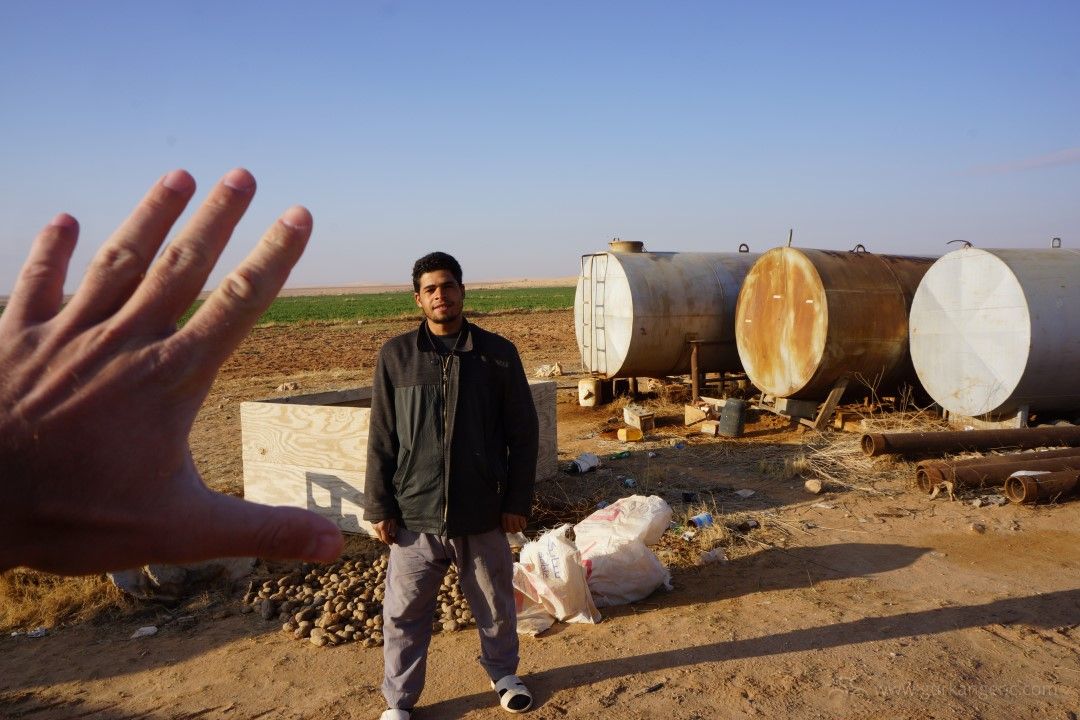
Before leaving in the morning I gave 600 Riyal (150 USD) to Ahmet from the money given to me on the road. At the beginning Ahmet didn’t want to take this money but then had to accept upon increasing my voice. Thanks for his hospitality. I go on my road.